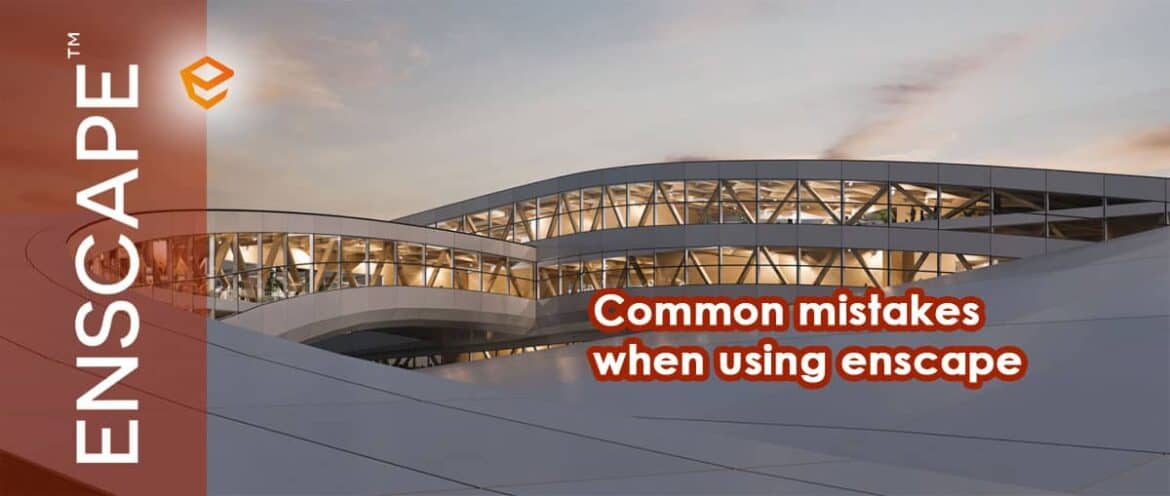The Enscape plug-in for Revit, SketchUp, Rhino, ArchiCAD, and Vector works allows for real-time rendering and virtual reality. You get an integrated visualization and design workflow by integrating it into your simulated application.
The interface is intuitive and easy to use without any specialized knowledge required. Designed, certified, and imagined simultaneously are all possible. You can use house models to make immersive 3D experiences quickly and easily.
Key Mistakes while Using Enscape
Most of your established members are likely set to default if you just started using Enscape. Therefore, your visual provided won’t certainly be optimized so that you can get the most realistic effects.
One Point Perspective
As a default, Enscape places employ one-point perspectives. In a birds-eye view, you render in a one-point perspective, but this isn’t something you do very often. In reality, this is the way you construct an architectural building, but this is not how most architects develop their personas. A two-point perspective offers a better way to deal with these components on the side of the model than a one-point perspective.
As you switch to a two-point view in the Enscape Visual Settings, you will notice that all the horizontal threads are now parallel and 90 degrees off the horizontal axis. However small this detail may seem, it still results in a dramatic difference in renderings.
Using readymade Assets again & again
The composition of this one and the balance of the overall design are more important. Beginners make this mistake too often. The Enscape Asset Library offers a wide range of vegetation options and numerous objects. As a result, it’s easy to carry away and use all ready-to-use items. It is important not to overuse the assets. When you leave space for the structure of your work to breathe, audiences can determine what your main subject matter is.
Sun Intensity
Enscape sets the intensity of the sun to a very high level by default. Whenever possible, sunlight vigor should be set between 7-15 percent, as this is the most common range of daylight severity that you experience in your day-to-day lives. Modifying the ferocity of the sun creates a more realistic scene.
HDRI
It will depend on how the HDRI will use if the daylight intensity is more or less than that. You probably already know what HDRI images are, but if you don’t, they’re likenesses from the real world that can act as a background and source of light for your scenes, providing you with very natural lighting effects.
You can add an HDRI by going to the Enscape Visual Settings window, to the Sky tab, using the skybox option, and loading your HDRI into that box. That creates a pair of incidents for the HDRI. The gyration barroom allows you to change the direction of the sun. Furthermore, it is possible to change the background name & hide the horizon cable.
Using the Same Objects again & again
New users tend to make the mistake of using objects that look identical. In order to create a more densely populated setting, a sequence of trees or thickets would have to be identical and arranged artificially so that they all face the same direction. In real life, plants do not look identical to each other, so that makes the landscape seem more realistic. Also, it’s good to change the slant and size of each plant to avoid repetition.
The service industry commonly uses randomization. There are many different ways to implement the same principle, and at its core, it’s just an addition of a flaw into renders.


